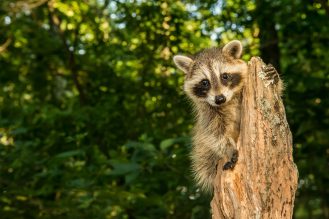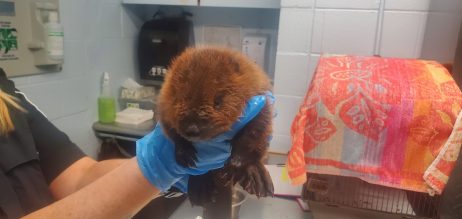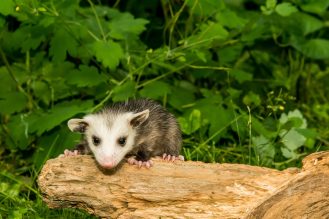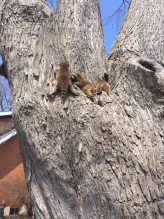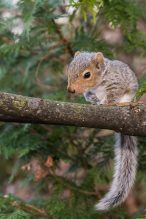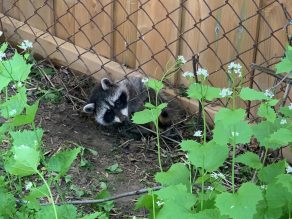Oh Deer! Please Leave Baby Wildlife Alone
City services | June 9, 2022
With spring upon us and baby wildlife everywhere, there’s an increased chance you’ll come across more wildlife – including baby animals like rabbits, birds, ducklings, goslings, foxes, skunks, squirrels, raccoons and opossums. While they can look cute and adorable, remember they are wildlife and should be left alone.
Around this time of year, many young animals, like baby birds, are needlessly rescued by residents. This interference from humans can be harmful or fatal to the young animal. There have been cases where well-intentioned residents have tried to rescue a baby animal because they think it has been abandoned, is in distress or has been orphaned. In an effort to help, people sometimes take these animals from their mothers and from their natural habitat. Mississauga Animal Services gets several calls from concerned residents about baby animals every year. Although they are sometimes orphaned or injured and need to be helped, most of the time, they should just be left alone.
No matter how cute, cuddly or small baby wildlife might be, interacting with wild animals poses serious risks to both humans and animals. Frightened animals might try to bite or scratch in an effort to defend themselves and can further injure themselves in an attempt to escape. Animals might also have rabies, which can be transmitted by certain animals who are not properly handled.
Helping Baby Wildlife
Figuring out if a baby animal is at risk is difficult. Your instincts may be to help baby wildlife who might seem helpless or defenceless; however, human intervention is only necessary if an animal is endangered, hurt or in distress. Babies shouldn’t be separated from their mother unless absolutely necessary.
You can help by monitoring the babies from afar to see if the mother or parents return. If the baby appears to be hurt, injured or in distress (e.g. a baby bird falling out of a tree), you should contact Animal Services.
Abandonment
Many times, baby animals haven’t been abandoned or orphaned. Most animals, including rabbits, squirrels, raccoons and foxes, will leave their young unsupervised for long periods of time while they hunt or forage for food. These long absences also prevent attracting predators to the nesting area. Many animals will hide their young for safety until they return.
Often, people mistakenly believe these animals have been abandoned, so they feel they should intervene; however, it’s best to leave them alone. Despite good intentions, many animals that are rescued by residents end up suffering or dying as they are often mishandled and released in areas where they have a small chance of surviving.
Remember:
- Don’t touch or intervene with baby animals unless there’s an immediate need (e.g. the animal is hurt, in distress or sick).
- Don’t move babies – keep them in their nests as their mothers may not be able to find them if you move them.
- Never take the animal into your home in an attempt to rehabilitate them. Wild animals require special care, and if they are sick or injured, special precautions need to be taken to ensure the animal will survive when it’s released back into the wild.
- Wildlife aren’t mean to be tamed, kept as pets or be in captivity.
- Don’t feed wildlife as they will start to worry less about finding their own food and become more dependant on humans.
- Avoid standing next to a nest for a long time waiting for the mother to return. In most cases, the mother is watching you and sees you as a predator. Leave the area and monitor from a distance so the mother feels safe to return.
- Avoid allowing your pets and children around the baby animal. When baby animals are rescued by humans, their chances of reuniting with their parents are jeopardized.
Mississauga residents and visitors are encouraged to enjoy and live in harmony with wildlife by respecting their natural instincts and behaviours.
If you see any animal in Mississauga that is injured, hurt or distressed, contact Animal Services at 311 or 905-896-5858.
Learn more about urban wildlife by visiting mississauga.ca/wildlife.
Tags
Media contact
City of Mississauga Media Relations
media@mississauga.ca
905-615-3200, ext. 5232
TTY: 905-896-5151
